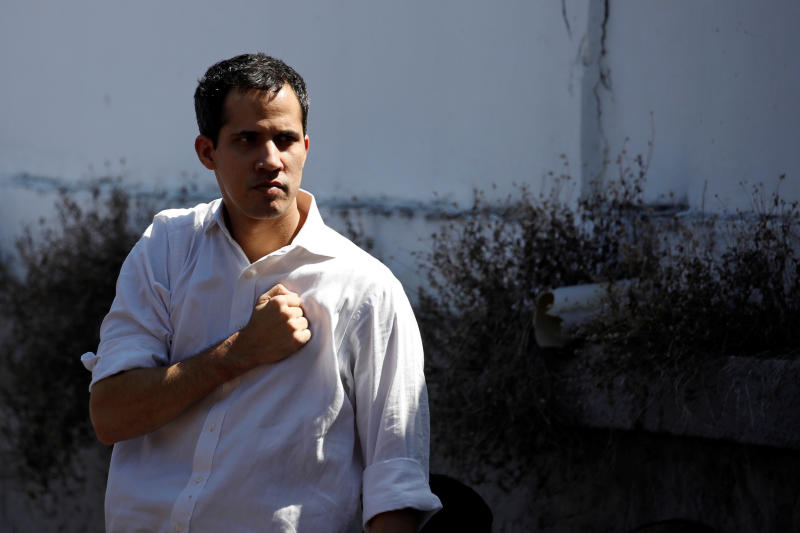National Assembly president released in Venezuela after detention
Sign up now: Get ST's newsletters delivered to your inbox

Juan Guaido, President of the Venezuelan National Assembly and lawmaker of the opposition party Popular Will (Voluntad Popular), arrives to a gathering in La Guaira, Venezuela, on Jan 13, 2019.
PHOTO: REUTERS
CARACAS (AFP) - The president of the opposition-controlled but sidelined National Assembly was released less than an hour after being arrested by Venezuelan intelligence agents on Sunday (Jan 13), his wife said.
Juan Guaido had directly challenged the legitimacy of Nicolas Maduro as the president was sworn in for a second term on Thursday, calling next day for a transitional government ahead of new elections.
"Thank you to everyone that reacted immediately with support against the dictatorship's abuses against my husband," said Fabiana Rosales on Twitter. "I'm already with him. The dictatorship cannot break his fighting spirit."
Guaido was detained as he travelled to a political meeting outside the capital Caracas, his wife and lawmakers said.
Rosales said the couple was intercepted on a highway by armed and hooded men in two Venezuelan intelligence service vehicles.
"They forced us to dismount. They did not hit him (Guaido) but they told us they had to proceed with his immediate arrest," she said in a telephone call make public by a member of the assembly, Larissa Gonzalez.
On her Twitter account, Rosales posted "Sebin detains Guaido," referring to the state intelligence services.
Soon after, however, came news that he had been released, and Guaido was met with cheering crowds when he finally reached the political meeting in Caraballeda, 40 kilometers (25 miles) from Caracas.
"Brothers and sisters, I'm here!" he said before directing a message at Maduro.
"The game is changing, the people are in the street, the symbols of pressure, resistence and strength are here.
"If they want to send a message so that we go into hiding, here is the people's response. We're here!" On Friday, the 35-year-old Guaido had said that the the Venezuelan constitution gave him the authority to assume power as part of a government of transition.
He also called on Venezuelans to rally on Jan 23 in support of such a transitional government, a significant date as it was then in 1958 that the military dictatorship of Marcos Perez Jimenez fell.
Maduro was re-elected in May in a vote that was boycotted by the opposition, whose best known leaders were barred from running, under house arrest or in exile.
The outcome was widely criticised as marred by fraud and voter intimidation, and the United States, the EU, Canada and a group of Latin American countries refused to recognise it.


